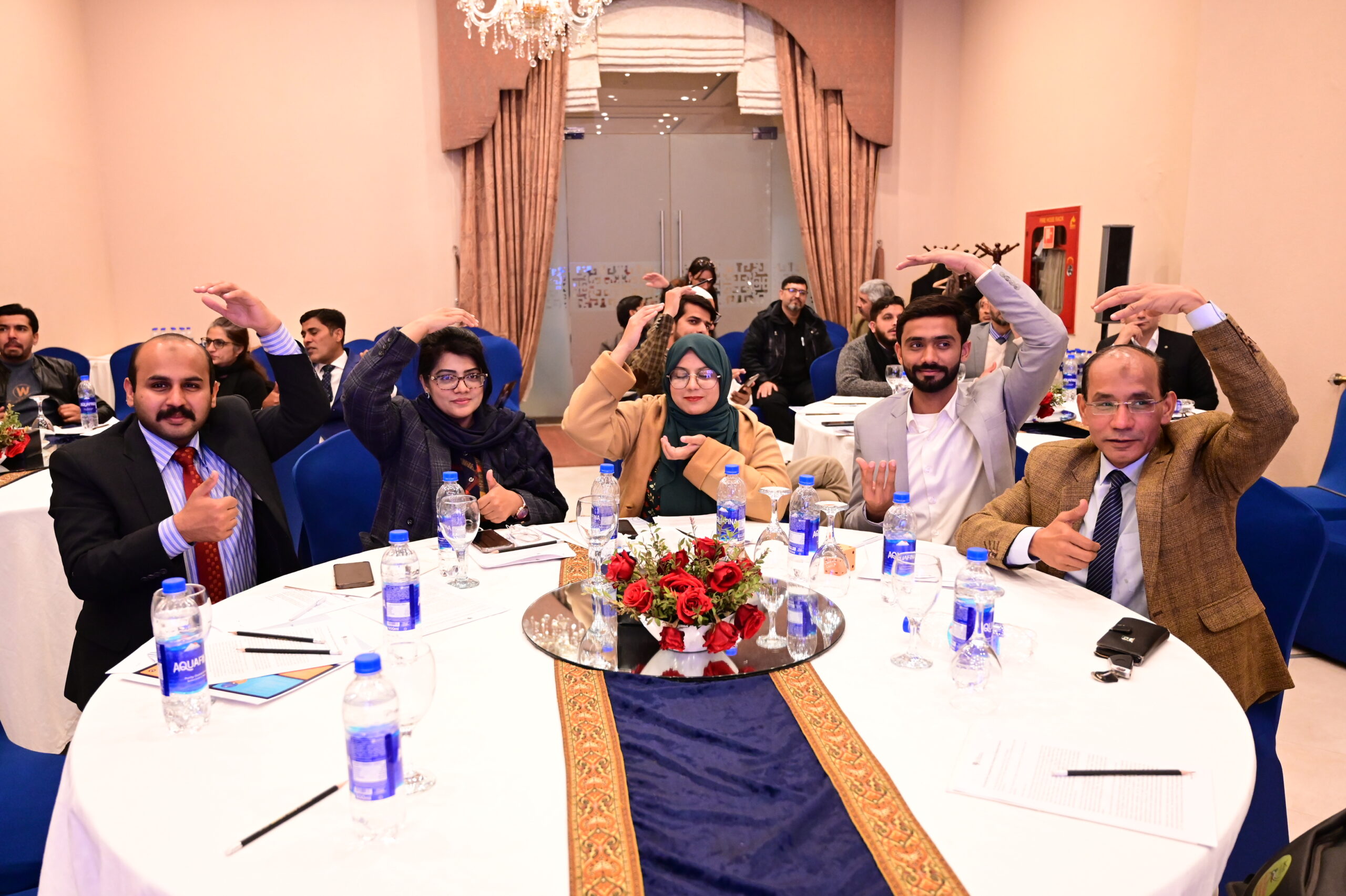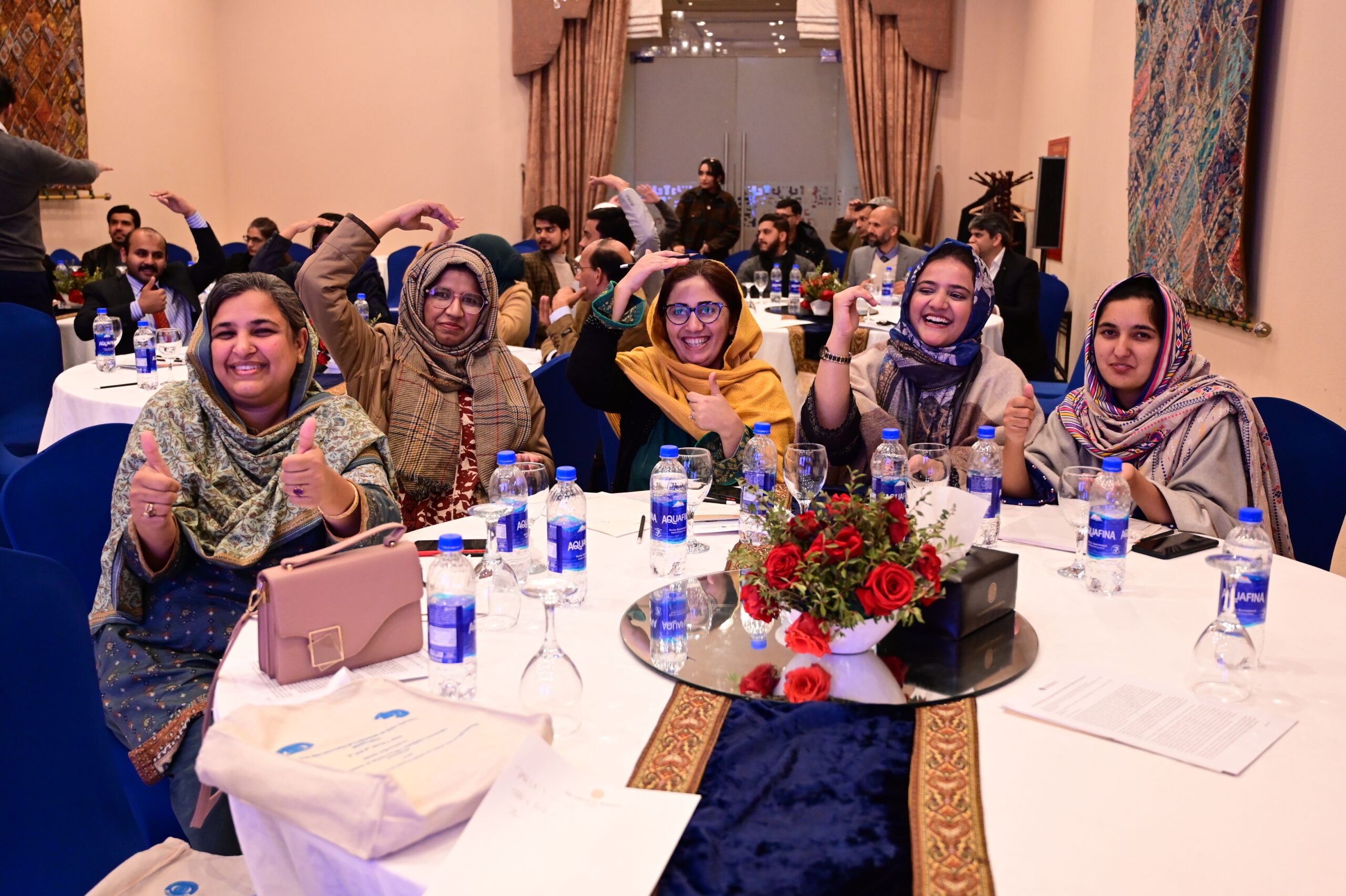By Hassaan Sipra, Director of Global Engagement
The Global Engagement Program at DSG is premised around the idea that justice-oriented solar geoengineering deliberations require relationship and community building across a large swath of globally diverse collaborators within the climate, justice, and emerging technology domains. Our goal is to develop networks across sectors in climate vulnerable communities and nations to understand what pathways for engagement on solar geoengineering look like for them and how best to support them. Providing opportunities for academia, civil society, and policymakers in different parts of the world to consider the state of the climate and solar geoengineering fields within the context of their own needs fosters learning, builds trust, and leads to more open discussions. The DSG mandate is to bring greater balance to the Global North-South divide on solar geoengineering knowledge generation and decision making capacity, and engagement through workshops is one mechanism to begin building sustained knowledge and its use in this field. Below are some lessons from our most recent engagement efforts in Pakistan.
Find the right execution partner
Our engagement activities in Pakistan in early January 2024 were the result of continuing collaboration between COMSATS University Islamabad (CUI) and DSG. Prior to joining DSG, I worked closely with Dr. Athar Hussain, Professor of Meteorology at CUI, on a 2022 Resources for the Future project on the perceptions of solar geoengineering across Kenya, Nigeria and Pakistan, and on a 2023 DEGREES Initiative project looking at the impacts of climate change and solar geoengineering on malaria across South Asia. We were keenly aware of the massive knowledge gap in the climate research and governance domains of Pakistan regarding solar geoengineering.
When CUI and DSG jointly won a grant from the Harvard 2023 Global Empowerment Meeting Incubation Fund in Fall 2023 to develop a solar geoengineering impacts based dashboard for health policymakers in South Asia, it encouraged both organizations to recognize that the space around solar geoengineering was growing in Pakistan.
Recognize when a country has enough base knowledge to jump-start engagement
Our efforts to increase local-specific, scientific knowledge on solar geoengineering in Pakistan did not occur in a vacuum. Two prior workshops in 2011 and 2016 by the DEGREES Initiative, in partnership with the Sustainable Development Policy Institute (SDPI) in Islamabad, concluded that a local and regional evidence base was necessary for local governance activities to take shape. In 2022, Janos Pasztor, then-Executive Director of the Carnegie Climate Governance Initiative, spoke at a seminar on global governance of solar geoengineering at SDPI, stressing the urgency of discussing these technologies from Global South perspectives, in the face of a rapidly approaching temperature overshoot.
Mr. Pasztor’s visit led to the Ministry of Climate Change & Environmental Coordination (MOCC&EC) issuing a letter in early 2023 to major universities in the country, encouraging them to undertake extensive research work on solar geoengineering. Finally, Ms. Hina Rabbani Khar, Minister of State for Foreign Affairs of Pakistan from April 2022 to August 2023, is serving as a Commissioner for the Climate Overshoot Commission, an independent group of eminent global leaders tasked with outlining strategies to reduce the risk of exceeding the Paris Agreement warming threshold.
These engagements, from multiple organizations at multiple levels, showcase that various entities and individuals in Pakistan have been working on solar geoengineering, and highlights the need for increasing engagement and facilitation.
Broaden the key stakeholder groups to those who can champion knowledge generation and dissemination
When CUI and DSG decided to jointly host a workshop on solar geoengineering in Islamabad, it was with the understanding that a more diverse group of Pakistani stakeholders needed to be introduced to this subfield of climate change, especially its benefits, risks and challenges, in the context of global scientific and governance outlook. In light of the MOCC&EC letter to universities expressing a need for more research on solar geoengineering, it was important to the workshop organizing committee to ensure that students and faculty at various Islamabad universities participate and learn about the various options for research work, at all levels.
We also conducted outreach with journalists in Islamabad that were already covering the local environmental and climate change beats. The organizing committee felt that science communication about solar geoengineering for the general public was missing within the broader climate change reporting in Pakistan. Given the high vulnerability of the country to climate impacts, it is imperative for Pakistani reporters to have a strong scientific and governance understanding of solar geoengineering and the field’s nuances that need to be conveyed to the general public. Similarly, civil society organizations, the backbone of demand for climate action, were also present at the workshop, to learn what was on offer with solar geoengineering technologies, the pitfalls associated with their potential deployment, and how Global South countries should seek to participate in growing international discussions on these technologies. Finally, various government organizations, such as health, fisheries, and wildlife, sent junior level officers to learn about solar geoengineering in the context of their work on climate change.
Polarizing views will emerge, but let them add to the discourse
Pakistan is one the most vulnerable countries to climate change, and it has been argued that vulnerable countries and communities could have the most to gain or lose from solar geoengineering, if judiciously (potentially) deployed. However, there is no guarantee that the global debate on solar geoengineering would lead to a similar conclusion. To date, the research and framing related to solar geoengineering has not taken into account the devastation already being wrought on Pakistan, which recently faced climate-induced floods that put one-third of the country under water and cost over US$30 billion in loss and damage. Further, a 1.5oC warming globally would mean a significantly higher warming for Pakistan – to the tune of 2oC-3oC of warming, impacting heatwave prone areas in Sindh, increasing flooding in Punjab and Balochistan, and accelerating the melting of the northern glaciers.
How should a country that is experiencing climate impacts faster than the rest of the planet view solar geoengineering technologies? Should these technologies be explored as mechanisms to delay the impacts of climate change for highly vulnerable countries, like Pakistan? What hope does Pakistan have of moving the needle on upcoming solar geoengineering negotiations, when just getting climate adaptation and finance measures took decades to get onto the docket of the climate change Conference of Parties?
The various speakers at the workshop framed Pakistan’s vulnerability as such and asked these questions, articulating why the Pakistan government and civil society need to engage with solar geoengineering more earnestly at the regional and international scales. There was an understanding among the participants that this global issue would require more capacity development among the scientific and governance circles in Pakistan to have effective deliberation on the subject. By having speakers and participants from academia, journalism, civil society, and government, the workshop provided an opportunity for diverse groups to present their viewpoints on solar geoengineering and learn about what mechanisms exist at the national, regional, and international levels to deal with these upcoming technological innovations.
Gamifying teaches more than lecturing


Many of the participants were interested in how solar geoengineering would impact their day-to-day lives and work. Divided into teams of five, the participants played a dice game called Decisions for the Decade, developed by Dr. Pablo Suarez, that offered the groups the option to finance disaster risk reduction in the face of climate change, and then allowed certain “wealthy” groups to determine if they wanted to deploy solar geoengineering. The discussions among the groups that unfolded as a result of introducing this new dynamic was fascinating to watch – akin to a model realpolitik set of actions that showed how different countries might react to a solar geoengineered world in the near future.
Many participants expressed that the hands-on gamification of solar geoengineering taught them more about the impending reality of these technologies as compared to the previous lectures and videos. It is important for future engagement exercises to incorporate similar activities that provide an authentic, learning experience for participants. Generally, games like this can take over an hour, but with the right context and host, such activities can serve as a compelling way to express the powerful discussions and negotiations likely to be in our collective future, when it comes to solar geoengineering.
Exploring Pakistani viewpoints beyond the workshop
On the sidelines of the workshop, DSG also took the opportunity to meet with 15 additional organizations as part of our engagement in Pakistan. These included three universities, four civil society organizations, two companies, two government organizations, and four independent climate experts. In most of our meetings, after introducing the concept of solar geoengineering and the DSG mission to increase global, inclusive dialogue as momentum grows around these discussions, the level of interest regarding its research and global governance requirements was astounding. We hope to share more about the specific collaboration points discussed soon, but generally, most organizations understood the urgency related to temperature overshoot and the shifting momentum (and investment) in exploring technological options in the Global North.
Primarily, most organizations were concerned with developing processes and research questions that would augment regional decision making regarding the potential use/non-use of solar geoengineering in the future. For example, how would such technologies change the water security and geopolitics of South Asia? What might be the local-to-international avenues and procedures that would allow Pakistan to effectively participate in the increasing global discussions on solar geoengineering? What civil society activities would garner the attention of Pakistani politicians and bureaucrats to begin serious deliberations on solar geoengineering, at home and abroad?
DSG recognizes that each country and region has a dynamic when it comes to its priorities with respect to climate action. Ensuring that solar geoengineering is included in those discussions is necessary to prepare countries and communities to deal with a likely temperature overshoot. Our work in Pakistan is just beginning, and will be part of a larger push to build and understand South Asia’s overarching position on solar geoengineering. Now that the first step is done – meeting and establishing rapport with various entities in Pakistan – we are expecting to support local organizations in building their own knowledge and perspectives there. Stay tuned for more!
